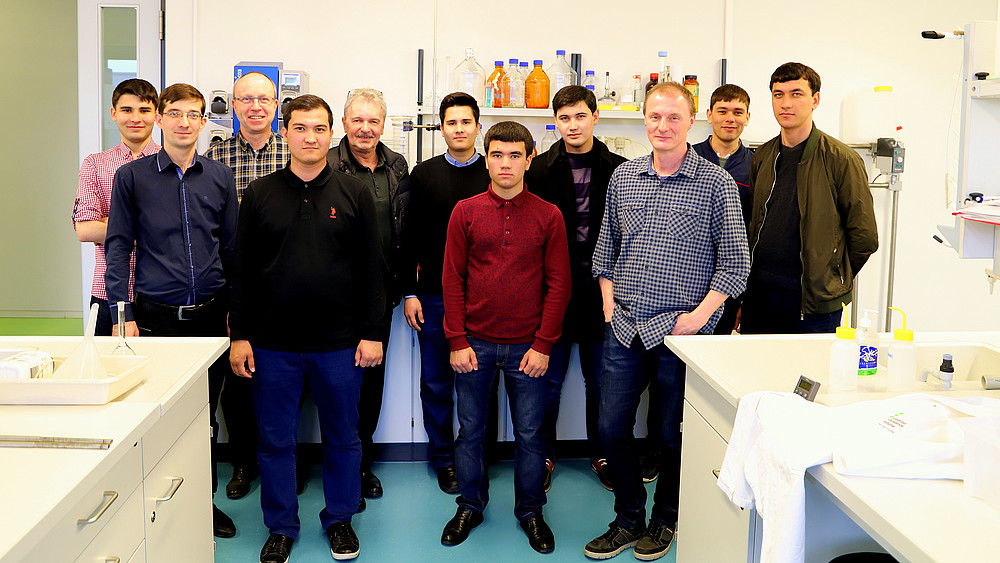Eleven students from Turkmenistan visited the Zittau campus.

In March, a group of young Turkmen students visited the Faculty of Natural and Environmental Sciences at the HSZG. The eleven men, aged between 22 and 29, came from a technical university in the Turkmen capital Ashgabat, which focuses on issues relating to transportation, in particular railroads, energy supply, computer science and management in training, teaching and research.
The contact was established via the West Saxon University of Applied Sciences Zwickau and the DAAD Bonn, which provided financial support for the trip. WHZ Zwickau, under the leadership of Dr. h. c. mult. Christian Brauweiler, WHZ Zwickau has established intensive contact with the Turkmen State Institute of Transportation and Communication in Ashgabat in recent years.
The eleven Turkmen students and colleagues were particularly interested in the aspects and issues of environmental and energy management. Prof. Dr. Bernd Delakowitz gave an engaging presentation on the current issues and problems being discussed in Germany with regard to climate change. Based on his knowledge of cooperation with Kazakhstan, a direct neighbor of Turkmenistan with similar economic, political, social, geographical and climatic conditions, he was able to make direct references to the guests' country. A tour of the campus with visits to laboratories rounded off the technical visit and information program.
Communication took place in English and Russian. The students had varying levels of English, some of them very good. The interdisciplinary programme was organized and led by Prof. Dr. Bodo Lochmann, former rector of the German-Kazakh University of Almaty. This included a hike in the Zittau Mountains with a visit to Oybin and Potter, as well as an intensive tour of the city. Accommodation for the students was organized by the Studentenwerk Zittau in an uncomplicated and flexible manner.
Bernd Delakowitz says: "The students were very enthusiastic, for example about the environmental management of our university or the German energy transition - with all its problems and mistakes, but also its successes. They were amazed, both by the program and by the high level of practical relevance that we have at our university."
Turkmenistan, it should be noted, is one of the most gas-rich countries in the world and has access to oil in the Caspian Sea. Nevertheless, it is a very isolated and isolated country, with a lot of desert and a dry, hot climate. This makes visits and contacts such as this one at the Zittau campus all the more important: similarities and differences become clear and cooperation is promoted.
What Germany and Turkmenistan have in common: Turkmenistan is also increasingly relying on solar power (in the country's large desert areas, there are more than 3000 hours of sunshine per year. In comparison: in Germany, the sun shines for less than 1000 hours. Turkmenistan is cooperating with Japan on photovoltaic or solar thermal technology - which is astonishing, because China would be much closer as a neighboring country and the Chinese are the world leaders in solar systems.
"A return visit to Turkmenistan is not planned for the time being, but perhaps the contact will lead to deeper cooperation," hopes Prof. Dr. Bernd Delakowitz. He would like to thank everyone involved: "We would like to thank all our colleagues who helped to make the Turkmen guests' stay in Zittau an unforgettable one."